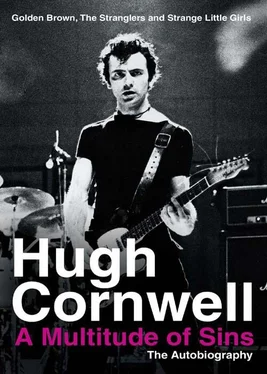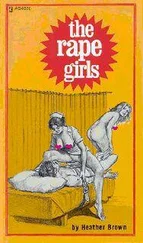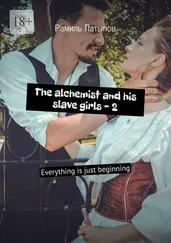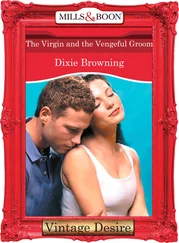As usual, no one says much during the ride to the venue. John Ellis, ex-Vibrators, is with us on this tour as a second guitarist and he is the most talkative. I promise myself that I will put everything into this concert as it’s going to be my last one as a Strangler. Normally a live set goes quicker than you would expect, but this one just races by. Before I know it, we are on stage doing an encore or two and then it’s all over and we are backstage in a caravan winding down. Someone asks me something about next week and I mutter an incoherent answer over my shoulder as I change my clothes. It’s been a good performance and the last thing I want to do is bring everyone down by announcing my news to the rest of the group. I make some excuses and manage to get away as soon as I can. I pass John Ellis on the way out the door, and I say, ‘Have a nice life’ to him, probably because he’s an outsider and has nothing to do with my decision. I grab one of the courtesy cars at our disposal and get a ride into Soho, where I get paralytically drunk with some unsuspecting friends …
Anyone who has been in a professional band for any length of time can tell you that it resembles being in a marriage without the sex. Long periods of time are spent in one another’s company; there are many shared experiences, in sickness and in health, for richer for poorer, etc, etc. It does help if you share a similar sense of humour or have similar tastes, but most of all, you have to enjoy each other’s company. Apparently, Sam & Dave, the immortal soul singers, only meet when they take to the stage together, and when the show is over they exit from different sides of the theatre.
Maybe I wouldn’t have left the group if I’d been having sex with one of them. To be really safe, maybe I should have been shagging them all. The only trouble is, gee whiz, I’m not that way inclined. As Sam Kinnison, the American stand-up comedian used to say, ‘I can’t stand the hairy backs.’
So I guess you can reach the conclusion that I wasn’t enjoying the company of Messrs Black, Burnel and Greenfield any more. When we first got together, we were finding out so much about each other. There was always something to ponder over and be curious about. I suppose we had got to know each other so well by 1990 that there was nothing left to find out, or nothing left that I was interested in. To spend sixteen years with one person is quite an achievement. I’d spent it with all three of them.
We had been working continuously together for all those years by the time I left and I remember one moment when the passage of time became a realization. We had returned to The 100 Club in Oxford Street, London, to play a secret gig prior to a tour, having last played there some seven or eight years previously. I found myself there in the afternoon while Jet was setting his drums up. I heard him laughing to himself. He was sitting on his drum stool and had recalled the last gig we’d played there all those years before. He’d remembered taking his watch off and finding a space in a brick wall beside him in which to put it. He had then forgotten about it until that moment and had checked the spot. Not only was the watch still there, but it was still keeping time. Passage of time is barely perceptible unless you can see that something has changed. The trouble is that The 100 Club still looks more or less the same as it did in the Sixties.
By contrast, I was a regular at another Soho club just round the corner, The Marquee, which no longer exists. It was there that I saw The Who, The Yardbirds (with Beck, Page and Clapton all playing together in the same line-up on one occasion), The Spencer Davis Group, and my favourites, The Graham Bond Organisation, with Graham Bond on organ, mellotron and soprano sax, Dick Heckstall-Smith on sax, Jack Bruce on bass and Ginger Baker on drums (they had tried out John McGoughlin on guitar but had sacked him). Then there was The Mark Leeman Five and The Action.
I was still at school and I’d go there by myself maybe twice a week. After the gig I’d get the Tube home and be back before midnight. One night a dodgy man in a raincoat offered me some purple hearts as I walked back to the Tube station. The Marquee was a very, very cool place, and hardly anyone spoke to one another, or barely moved. They just stood still and listened to the bands. It was perfectly portrayed by Michelangelo Antonioni in his film, Blow Up, in which The Yardbirds are playing and Jeff Beck destroys his guitar and throws it into the crowd as an offering. Going back there with The Stranglers it seemed a lot smaller, but it was a thrill for me. We played there once in the early days for a fiver supporting Ducks Deluxe, who shared the same management as us. After the gig we packed our equipment back into the ice-cream van and I went to collect the fiver from Sean Tyla of Ducks Deluxe, as instructed by Dai Davies, one of the managers. Sean fobbed me off a couple of times, saying he hadn’t been paid yet and I’d have to wait. I finally got it out of him about two hours later, and had great pleasure seeing him six months later when his new band The Tyla Gang were supporting us at Oxford Polytechnic.
But to get back to the point, it just wasn’t happening for me in The Stranglers anymore. The last thing I wanted to do was to go through the motions and become an anachronism. The whole band had grown apart. When, we started out, we were each other’s family. One by one, the band members started their own families and we stopped relaxing together. We’d meet up, rehearse, disperse, reconvene at a studio, record, disperse again, and the same thing would happen when a tour was scheduled. I had no idea what any of the other three were up to outside of when we worked together. It really had become a day job and you know what they say about that. But I did give it up and I feel much better for it. I just couldn’t see myself being in a group at the age of fifty, but I could see a future making music.
I was also getting tired of compromising. In a group, there is a certain amount of democracy or it won’t function. A group’s collective psyche or image is a mixture of all the things that everyone brings in, and the less you bring in, the less of you is found in the collective psyche. The Stranglers’ coat didn’t fit me anymore. I didn’t feel like one any longer and the more I thought about it, the less comfortable I felt, and the less satisfied I became. I was writing more and more by myself, creating even more of a distance from the others. While we were working on the last studio album I was on, called 10, I was accused of trying to turn it into a solo album, because I was layering harmonies on top of my own voice on a song I’d written, which the others had approved for the album.
A big paradox of the punk movement occurred to me recently. Most of all the significant bands of that period are alive and well and still performing more or less the way they were back then. This seems funny, considering it was a nihilistic movement and yet there was only one star casualty, namely Sid Vicious. But the reason is simple enough. The bands are still there because it pays the rent. There’s nothing wrong with that, it’s the ethic behind why most people all over the world do their jobs every day. But I did take a huge financial risk when I left The Stranglers. We were due to sign a new publishing deal soon afterwards that would have brought in a fat cheque for us to share, but I knew to stick around just for that didn’t make any sense. Any decent lawyer would have smelt a rat if I’d left after signing, and we’d have been sued. The funny thing is, we’d very nearly split up years before when Dai Davies and Derek Savage, our first managers, suggested we should call it a day after the first three albums, which we’d released in the unbelievably short period of just fourteen months.
Читать дальше












